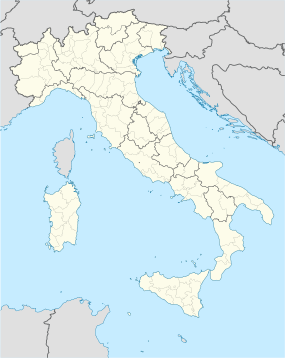Heraclea Lucania
| Ἡράκλεια | |

Foundations of building walls at Heraclea
|
|
| Location | Policoro, Province of Matera, Basilicata, Italy |
|---|---|
| Region | Magna Graecia |
| Coordinates | 40°13′12″N 16°40′11″E / 40.22000°N 16.66972°ECoordinates: 40°13′12″N 16°40′11″E / 40.22000°N 16.66972°E |
| Type | Settlement |
| History | |
| Builder | Colonists from Tarentum and Siris |
| Founded | 432 BCE |
| Events | Battle of Heraclea |
| Site notes | |
| Condition | Ruined |
| Ownership | Public |
| Management | Soprintendenza per i Beni Archeologici della Basilicata |
| Public access | Yes |
| Website | Area archeologica di Herakleia (in Italian) |
Heraclea, also Heracleia or Herakleia (Ancient Greek: Ἡράκλεια), was an ancient city of Magna Graecia. It was situated on the Gulf of Taranto between the rivers Aciris (modern Agri) and Siris (modern Sinni). The ruins of the city are located in the modern comune of Policoro in the Province of Matera, Basilicata, Italy.
It was a Greek colony, but founded at a period considerably later than most of the other Greek cities in this part of Italy. The territory in which it was established had previously belonged to the Ionic colony of Siris, and after the fall of that city seems to have become the subject of contention between the neighboring states. The Athenians had a claim upon the territory of Siris, and it was probably in virtue of this that their colonists the Thurians, almost immediately after their establishment in Italy, advanced similar pretensions. These were, however, resisted by the Tarentines; and war ensued between the two states, which was at length terminated by an arrangement that they should found a new colony in the disputed district, which, though in fact a joint settlement, should be designated as a colony of Tarentum (modern Taranto). The few remaining inhabitants of Siris were added to the new colonists, and it would appear that the settlement was first established on the ancient site of Siris itself, but was subsequently transferred from thence, and an ancient, but new city founded about 24 stadia from the former, and nearer the river Aciris, to which the name of Heraclea was given. Siris did not cease to exist, but lapsed into the subordinate condition of the port or emporium of Heraclea. The foundation of the new city is placed by Diodorus in 432 BCE, fourteen years after the settlement of Thurii; a statement which appears to agree well with the above narrative, cited by Strabo from Antiochus of Syracuse. Diodorus, as well as Livy, calls it simply a colony of Tarentum. Antiochus is the only writer who mentions the share taken by the Thurians in its original foundation. Pliny erroneously regards Heraclea as identical with Siris, to which it had succeeded; and it was perhaps a similar misconception that led Livy, by a strange anachronism, to include Heraclea among the cities of Magna Graecia where Pythagoras established his institutions.
...
Wikipedia

